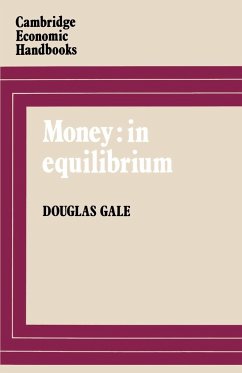As the title suggests, this book deals mainly with what can be described as the general-equilibrium approach to monetary theory. The author does not attempt an encyclopaedic treatment, but investigates the central problems and ideas in the development of contemporary monetary theory. The first part of the book - technically the easier - deals with questions which will be recognized as falling within the traditional field of (macroeconomic) monetary theory, although the treatment is unflaggingly microeconomic. The second part is less conventional, dealing with the general equilibrium theory of money in a fundamental way.
Table of contents:
Introduction; 1. The neutrality of money; 2. Informational efficiency and economic efficiency; 3. Expectations and economic policy; 4. The economic costs of inflation; 5. Sequences of budget constraints; 6. Monetary equilibrium: a cooperative approach; 7. Monetary equilibrium: a non-cooperative approach; Mathematical appendix; Bibliographical notes; References; Index.
Hinweis: Dieser Artikel kann nur an eine deutsche Lieferadresse ausgeliefert werden.
Table of contents:
Introduction; 1. The neutrality of money; 2. Informational efficiency and economic efficiency; 3. Expectations and economic policy; 4. The economic costs of inflation; 5. Sequences of budget constraints; 6. Monetary equilibrium: a cooperative approach; 7. Monetary equilibrium: a non-cooperative approach; Mathematical appendix; Bibliographical notes; References; Index.
Hinweis: Dieser Artikel kann nur an eine deutsche Lieferadresse ausgeliefert werden.








